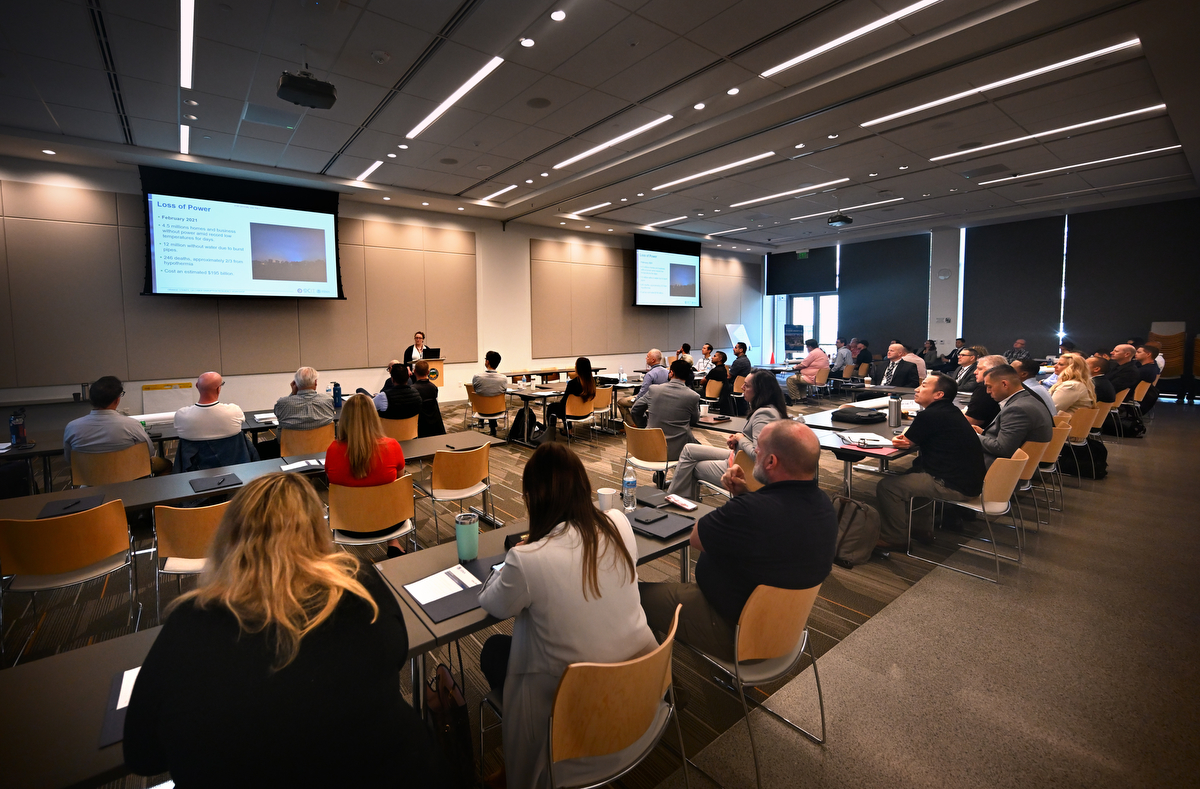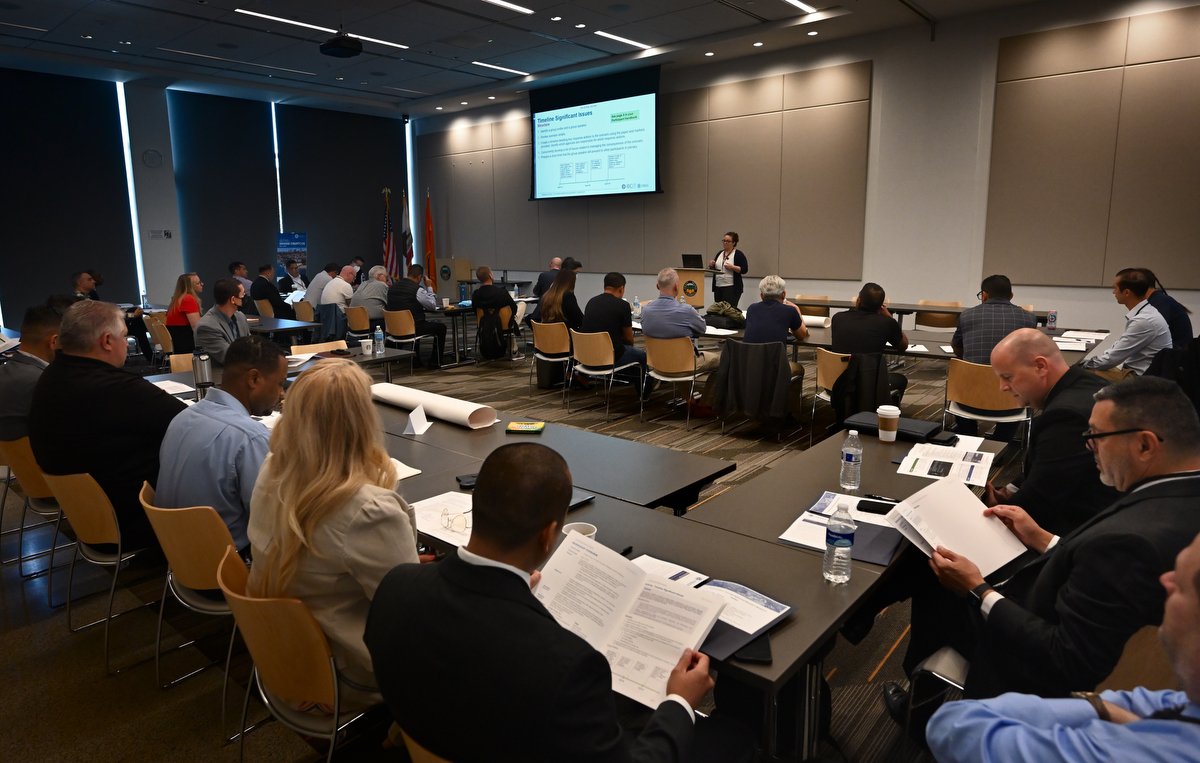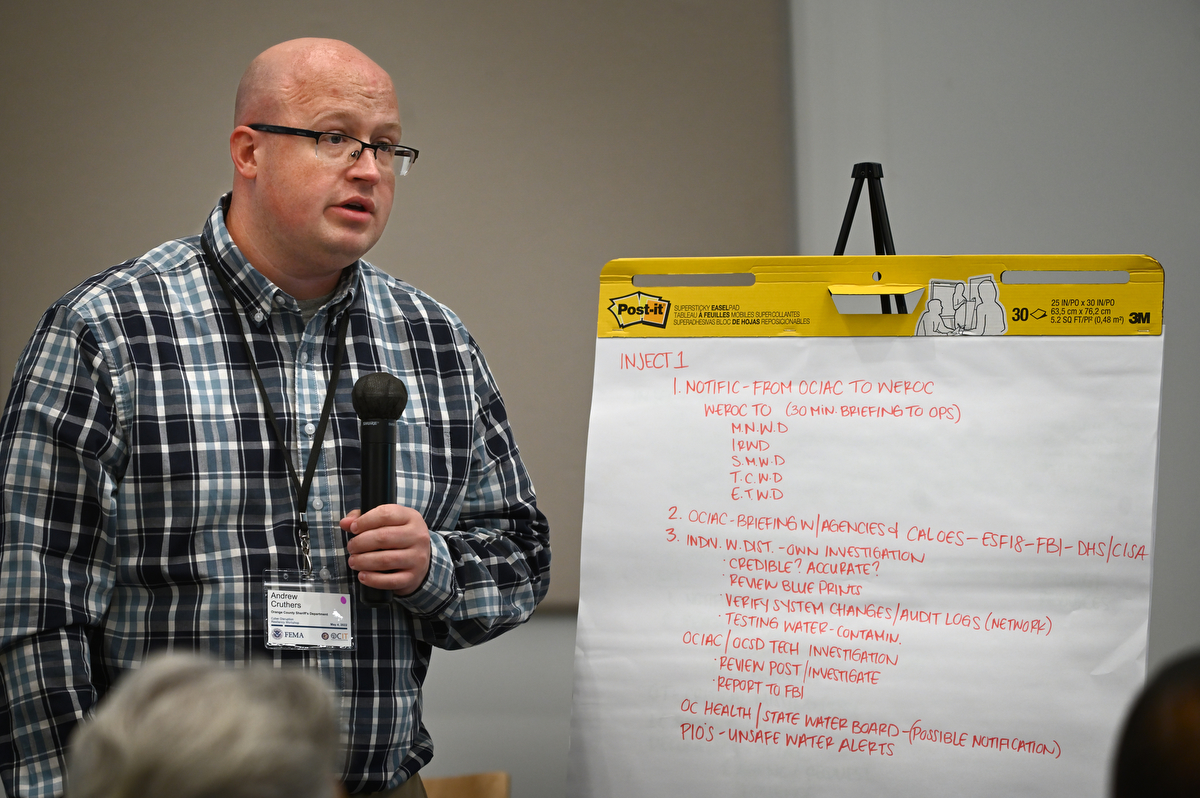A post seen on a well-known dark web site used by hackers states residents of Orange County should be prepared for a toxic water situation.
The Orange County Intelligence Assessment Center (OCIAC) believes the threat to be credible.
A worker at an Orange County water treatment plant discovers the plant’s data output and validations are being copied and sent to an unknown email account from a computer station only accessible by employees.
An emergency response team from the water district along with OCIAC began an investigation and discovered that a computer program regulating the amount of chemicals infused into the water has been manipulated.
This mock scenario was one exercise held during a Cyber Disruption Resiliency Workshop on May 4 at a county facility.
OCIAC and the U.S. Department of Homeland Security’s Cybersecurity and Infrastructure Security Agency (CISA) hosted the workshop, which incorporated real-world examples of cyber incidents that could effect Orange County operations and infrastructure. Participants included the Orange County Information Technology, the FBI’s Orange County Cyber Task Force, special districts, municipal agencies, and partners in the sector.

Nicole Nunnari, Argonne National Laboratory, gives a prevention on the Planning for Disruptive Cyber Incidents for those attending the Orange County Cyber Disruption Resiliency Workshop in Santa Ana.
Photo by Steven Georges/Behind the Badge
Residents interested in learning about cyber threats and the most common examples of suspicious activity online, can visit safeoc.com. for information. SafeOC works collaboratively with OCIAC to help the public report potential cyber-attacks directly to law enforcement officials.
The most prominent emerging threats locally and globally are cyber threats, OCIAC Director Alberto Martinez said.
“The time to get to know partners in law enforcement, public agencies, and private companies is before a threat or actual cyber incident occur, not after,” Martinez said. “Communication is very important… Having that partnership is very important to us.”

Participants from multiple agencies listen to a presentation during the Orange County Cyber Disruption Resiliency Workshop.
Photo by Steven Georges/Behind the Badge
Virtually every aspect of life depends on computer technology, he said, including transportation, hospitals, finance, water supplies, communication systems, and the internet, to name a few. OCIAC’s role is to ensure the agencies know each other and can offer input before a cyber incident occurs, Martinez said.
“It’s very important to us that we are providing information to the police, the sheriff, fire chiefs, our public health partners, and our private sector partners,” Martinez said. “We ingest information, we analyze it, and we ensure that our partners receive that in a timely manner.”
Lance Larson, a cyber investigator assigned to OCIAC, said cyber-attacks are perpetrated for a variety of reasons. Some are implemented for financial gain or motivated by politics. Some even get a thrill from watching the unfolding disruption and chaos caused by the attack, Larson said.

Participates gather to exchange ideas during the Orange County Cyber Disruption Resiliency Workshop.
Photo by Steven Georges/Behind the Badge
“During the course of investigations, we’ve done previously in Orange County, we have found that the cyber threat actors come from all over,” said Larson, a cyber-crime investigator for 12 years. “Even in Orange County, we see attacks from nation states. We see incidents from brand new criminal hackers and organized cyber criminals. We expect our credit card information is safe. Unfortunately, there are bad criminal cyber actors who are relying on our confidence to be able to take advantage of it and steal our payment information and our personally identifiable information and sell it on the dark web.”

Tiffany Baca, Municipal Water District of OC, writes down the ideas of her group during the Orange County Cyber Disruption Resiliency Workshop.
Photo by Steven Georges/Behind the Badge
The workshop also featured a panel discussion involving experts with the FBI, Department of Homeland Security, OCIAC, and Orange County Information Technology.
“Being one of the largest metropolitan areas in the country, Orange Country has been and will continue to be victimized by cyber-attacks,” Martinez said.
If you, or someone you know, has been the victim of a cyber-attack please report suspicious activity directly to OCIAC or through SafeOC.com.

Robert Mielish listens to a presentation during the Orange County Cyber Disruption Resiliency Workshop.
Photo by Steven Georges/Behind the Badge

Participants from multiple agencies listen to a presentation during the Orange County Cyber Disruption Resiliency Workshop.
Photo by Steven Georges/Behind the Badge

Participants from multiple agencies listen to a presentation during the Orange County Cyber Disruption Resiliency Workshop.
Photo by Steven Georges/Behind the Badge

Nicole Nunnari, Argonne National Laboratory, gives a prevention on the Planning for Disruptive Cyber Incidents for those attending the Orange County Cyber Disruption Resiliency Workshop in Santa Ana.
Photo by Steven Georges/Behind the Badge
 Behind the Badge
Behind the Badge





